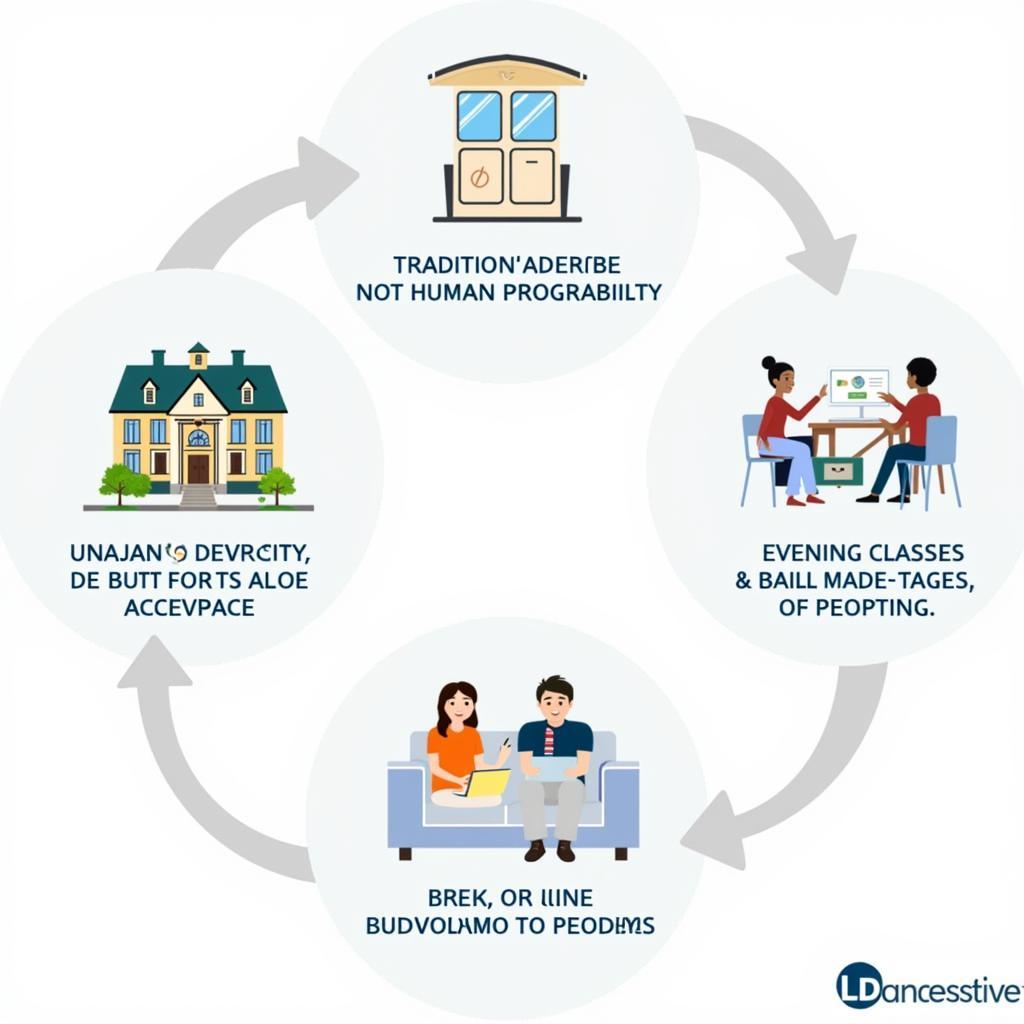How to Get a Career in Human Services
A career in human services can be incredibly fulfilling, offering the opportunity to make a real difference in people’s lives. If you’re passionate about helping others and driven by a desire to contribute to your community, this could be the perfect field for you. But how do you get started? This guide will walk you through the steps to launch a successful and rewarding career in human services.
Understanding the Human Services Field
Before diving into the specifics, it’s important to grasp the breadth and depth of human services. This field encompasses a wide range of professions, all united by a common goal: to improve the well-being of individuals, families, and communities.
 Diverse Human Services Professionals
Diverse Human Services Professionals
Human services professionals work with diverse populations facing various challenges, including poverty, homelessness, substance abuse, mental health issues, and disabilities. They provide direct services, such as counseling, advocacy, and crisis intervention, or work behind the scenes in administrative, research, or policy roles.
Educational Pathways
While specific requirements vary depending on your desired career path, most human services roles require at least a bachelor’s degree. Relevant fields of study include:
- Social Work: Provides a strong foundation in social welfare systems, human behavior, and advocacy.
- Psychology: Offers insights into human cognition, emotions, and behavior, essential for understanding and addressing individual and interpersonal challenges.
- Sociology: Examines societal structures, social problems, and group dynamics, providing a broader perspective on the factors influencing human well-being.
- Human Development and Family Studies: Focuses on the physical, emotional, and social development of individuals and families across the lifespan.
 Earning Your Human Services Degree
Earning Your Human Services Degree
Beyond a bachelor’s degree, a master’s degree can significantly enhance your career prospects, particularly for clinical roles like licensed counselors or social workers.
Gaining Practical Experience
While education is crucial, practical experience is equally valuable in human services. It allows you to apply your knowledge, develop essential skills, and gain valuable field experience. Consider these options:
- Volunteering: Dedicate time to organizations aligned with your interests, whether it’s a homeless shelter, a domestic violence hotline, or a youth mentorship program.
- Internships: Seek internships at social service agencies, non-profits, or government organizations to gain hands-on experience under the guidance of seasoned professionals.
- Part-time Jobs: Look for entry-level positions in related fields like caregiving, community outreach, or administrative support within human service organizations.
These experiences provide real-world insights, build your professional network, and demonstrate your commitment to the field.
Developing Essential Skills
Human services professionals require a unique blend of hard and soft skills to thrive. Essential skills include:
- Communication: Effectively communicate with diverse individuals, conveying empathy, understanding, and respect.
- Active Listening: Pay attention to both verbal and nonverbal cues, demonstrating genuine interest and understanding.
- Problem-Solving: Analyze situations, identify challenges, and develop creative solutions to address complex needs.
- Empathy and Compassion: Connect with individuals on a human level, showing genuine care and concern for their well-being.
- Cultural Competency: Understand and appreciate diverse cultures, backgrounds, and perspectives to provide culturally sensitive services.
- Organization and Time Management: Juggle multiple cases, prioritize tasks, and meet deadlines effectively.
 Honing Essential Skills for Success
Honing Essential Skills for Success
Finding Your Niche
With numerous specializations within human services, identifying your niche is crucial. Reflect on your passions, interests, and strengths.
Ask yourself:
- What social issues are you most passionate about?
- What populations do you feel most drawn to working with?
- What skills and strengths can you contribute to the field?
Research different career paths, explore online resources, and network with professionals to gain insights into various roles and settings.
Launching Your Career
Once you’ve gained the necessary education, experience, and skills, it’s time to launch your career.
- Network: Attend conferences, join professional organizations, and connect with individuals in your desired field.
- Tailor Your Resume and Cover Letter: Highlight your relevant skills, experience, and passion for human services.
- Prepare for Interviews: Research common interview questions and practice articulating your skills and experiences.
- Stay Persistent: Job searching can be challenging, so stay positive, persistent, and don’t be afraid to seek support from mentors or career counselors.
Conclusion
Embarking on a career in human services is a journey fueled by compassion, dedication, and a genuine desire to make a positive impact. By pursuing relevant education, gaining practical experience, developing essential skills, and networking strategically, you can turn your passion into a fulfilling career dedicated to empowering others and creating a more just and equitable society.

